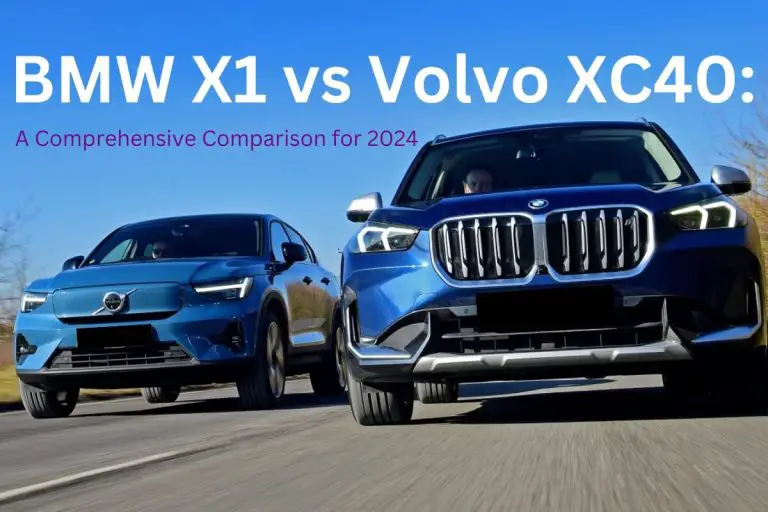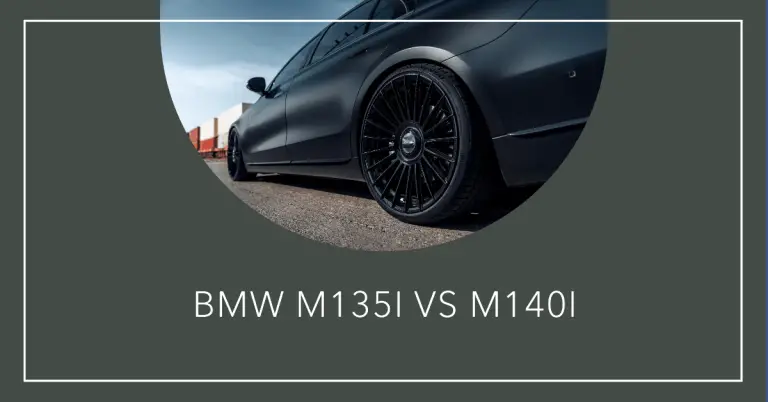BMW vs Mercedes Reliability: Which is More Dependable?
When it comes to German luxury cars, the rivalry between BMW and Mercedes-Benz runs deep. For decades, these two automotive giants have gone head-to-head, competing fiercely for the affections of performance car enthusiasts and luxury vehicle buyers. Beyond the quintessential German engineering, sleek styling, and hushed cabin luxury, one critical factor often separates them – reliability.
So which of these two iconic brands builds the more reliable and dependable vehicles – BMW or Mercedes?
Based on data from multiple sources including consumer agencies, quality surveys, and owner experiences, BMWs tend to be more reliable than Mercedes models overall. However, both brands have their strengths and weaknesses when it comes to dependability.
This comprehensive guide will analyze all the key aspects that determine a vehicle’s reliability, comparing the two German luxury brands side-by-side. Here’s a detailed look at what we’ll cover:
- Reliability ratings and scores from major consumer agencies like J.D. Power and Consumer Reports
- Common reliability issues across various models, including engines, electrics/electronics, suspensions and more
- Maintenance costs, repair expenses and total ownership costs for BMWs vs Mercedes
- Head-to-head model vs model comparisons analyzing reliability of specific vehicles
- First-hand owner experiences, perspectives and brand perception of reliability
- Important factors to consider when choosing between BMW and Mercedes for maximum dependability
By the end, you’ll have a clear, data-driven picture of which German luxury marquee currently has the edge in manufacturing more reliable vehicles. Whether you’re a performance luxury enthusiast or just want peace of mind from your premium car, this BMW vs Mercedes reliability deep-dive is a must-read.
So let’s rev up and dive into the details!
Reliability Ratings From Major Sources
When it comes to evaluating vehicle reliability, two of the most trusted and comprehensive sources are Consumer Reports and J.D. Power’s Vehicle Dependability Study. Let’s see how BMW and Mercedes fare in their latest ratings and rankings:
Consumer Reports
In Consumer Reports’ latest Annual Auto Surveys, BMW ranked an impressive 3rd out of 32 car brands for predicted reliability. Mercedes-Benz, on the other hand, languished down in 27th place, scoring well below average.
This continues a multi-year trend where BMW consistently outscores Mercedes by a significant margin in terms of Consumer Reports’ reliability ratings. Over the last five years, BMWs have averaged a reliability score of around 60/100 while Mercedes sits in the 30s.
While not perfect, BMW scores reflect much fewer problems reported by owners when it comes to trouble areas like engines, transmissions, electrical systems, and more. Mercedes seems to struggle with more frequent and widespread issues across its lineup.
J.D. Power Vehicle Dependability Study
J.D. Power’s 2023 U.S. Vehicle Dependability Study (VDS), which surveys owners of 3-year-old vehicles, paints a similar picture. BMW ranks 11th with 108 problems per 100 vehicles, while Mercedes places 15th with a higher 122 problems per 100 vehicles.
Notably, problems were spread across most Mercedes model lines, with infotainment systems, electrical components, and “vehicle exterior” issues like water leaks and wind noise being particularly troublesome. BMW’s main problem areas included climate control systems and vehicle exterior defects.
While not disastrous scores for either brand, BMW’s consistently higher rankings in this crucial study of long-term dependability shows an advantage over Mercedes in real-world reliability after a few years of ownership.
Common Reliability Issues
Behind the ratings and scores, it’s worthwhile to look at some of the specific reliability issues and weak points that have plagued these luxury brands based on owner experiences, expert analysis, and technical service bulletins.
Engine Problems
One area where neither BMW nor Mercedes has fully covered itself in glory is engine reliability. Both brands have had their share of problematic engines over the years, requiring costly repairs or replacements.
For BMW, some of the biggest trouble sources have included:
- N63 V8 found in models like X5, X6, 550i (timing chain guide issues, excessive engine wear)
- N20/N26 4-cylinder engines like 328i, 528i (timing chain failures, oil leaks, excessive fuel dilution)
- N54 twin-turbo six-cylinder (high-pressure fuel pump failures, oil leaks, injector issues)
On the Mercedes side, engine issues have often revolved around:
- M272/M273 V6 gas engines across many models (balance shaft failures, excessive camshaft wear)
- OM642/OM651 diesel V6 (excessive oil consumption, injector issues, turbo failures)
- M157 V8 AMG engine (head bolt issues, timing chain guide wear, excessive oil consumption)
While both manufacturers have attempted to resolve these issues through redesigns and implementation of more robust engine components, overall BMWs seem to fare slightly better than Mercedes when it comes to serious powertrain reliability problems over the long run.
Electrical/Electronics Problems
With today’s modern luxury vehicles being incredibly complex and loaded with cutting-edge tech, electrical and electronic faults are among the most common issues for both BMW and Mercedes owners.
For BMWs, this often manifests as problems with the SRS/airbag system, instrument clusters going blank, failed window regulators, and climate control malfunctions. On higher-end models, the intricate gesture control and night vision features have proven overly sensitive and glitch-prone for some owners.
Mercedes vehicles have their own long list of electrical and electronic snafus. Issues range from complete system shutdowns and failures requiring full reset, buggy COMAND infotainment units, faulty power liftgate releases, and iffy electrical grounds that drain batteries or deactivate safety systems.
The brand’s latest MBUX infotainment seems particularly problematic based on owner complaints. Its voice control is highly erratic and features like augmented navigation routinely freeze or shut down entirely according to many reports.
While electrical problems are bound to happen on any modern vehicle, Mercedes seems more susceptible to widespread showstopper issues that can render systems completely inoperative. BMWs may have more isolated glitches but largely avoid total meltdowns of major systems.
Suspension, Brakes, and Other Issues
Suspension woes like leaky shocks/struts, squeaky or clunking noises from bushings, and excessive or uneven tire wear are common complaints for both luxury brands. However, Mercedes seems particularly prone to issues with its AIRMATIC air suspension systems when it comes to premature leaks and failures.
Brakes are another frequent issue, with both BMW and Mercedes owners reporting excessive wear, pulsations, and warped rotors far sooner than expected, even under normal driving conditions. This likely stems from performance-oriented brake system designs that prioritize short stopping distances over longevity.
Other common problem areas include water leaks into cabins, wind noise from weatherstripping failure, faulty exterior lighting assemblies, and fuel delivery issues requiring replacement of components like high-pressure fuel pumps and injectors.
Overall, while no vehicle is perfect, BMWs seem to have fewer frequent flyers when it comes to reliability complaints, giving them a slight edge over Mercedes models. However, due diligence is required from owners of both brands to stay ahead of preventative maintenance.
Maintenance and Repair Costs
Beyond the reliability ratings and typical problem areas, another crucial factor in comparing BMW vs Mercedes long-term dependability is the associated maintenance and repair costs.
Data from RepairPal shows BMWs cost an average of $968 per year for maintenance and unexpected repairs. Mercedes models average slightly lower at $908 annually, but that’s still higher than most mainstream brands.
For basic items like brake pads and rotors, Mercedes owners pay 15-20% higher prices due to their performance braking systems. Tires are another big spend for both brands thanks to low-profile, high-performance rubber being more expensive and wearing quicker.
When larger repairs are required like engine or transmission overhauls, Mercedes parts and labor costs tend to be significantly higher than their BMW counterparts based on reports from independent mechanics. This can negate any savings over smaller maintenance items.
Both BMW and Mercedes provide several years of free maintenance to new car owners, but these “free” services are likely baked into higher vehicle prices. Once that period ends, maintenance wallets will be lighter.
Many owners attempt to offset these higher luxury car repair costs through extended warranty or pre-paid maintenance plans which can provide some fixed budgeting. However, the coverage levels, exclusions, and fine print require careful study as these plans vary greatly between brands.
While cost of ownership for both BMW and Mercedes is far from cheap, particularly as vehicles age, it seems BMWs hold a slight advantage based on lower average repair costs and parts pricing compared to equivalent Mercedes vehicles. But proper maintenance remains key for reliability from either brand.
Model vs Model Comparisons
To better understand how reliability stacks up between these two brands, let’s take a look at some head-to-head matchups of equivalent model lines:
BMW 3 Series vs Mercedes C-Class
These compact luxury sport sedans (and their coupe/convertible counterparts) are bread-and-butter entries for BMW and Mercedes. Both are available with a wide range of turbocharged 4 and 6-cylinder engines as well as high-performance M/AMG variants.
Looking at reliability data, the BMW 3 Series seems to have an edge over the C-Class. The current G20 3 Series earned a higher predicted reliability rating from Consumer Reports. It also placed among the top 10 models in J.D. Power’s 2023 Vehicle Dependability Study while the W206 C-Class landed in the bottom third.
Common trouble spots for the C-Class include excessive brake wear, electrical glitches like failed fuel pump control modules, leaky sunroofs, and issues with the 9-speed transmission. The 3 Series hasn’t been problem-free either, with complaints about rattles, sluggish infotainment response, and cooling system hiccups.
However, most reviewers and owner forums suggest the 3 Series is the more solidly constructed and dependable pick when issues do arise. Parts availability and labor costs also tend to favor BMW for these entry-level luxury sedans.
BMW 5 Series vs Mercedes E-Class
Moving up a notch, the BMW 5 Series and Mercedes E-Class are their brands’ respective mid-size luxury flagships, blending performance and comfort with the latest technologies.
Like the more compact models, the 5 Series seems to have a slight dependability advantage based on studies and owner sentiments. The latest G30 generation earned an above average reliability rating from Consumer Reports, while the W213 E-Class slotted below average.
Specific problems plaguing the E-Class include widespread electrical bugs like failing HVAC actuators and faulty power steering racks. There have also been quality issues like wind noise from poor sealing, water leaks, and issues with the 9-speed transmission.
The 5 Series hasn’t been perfect either, with complaints about artificial engine sound being piped in, computer glitches causing stalling, and longevity issues with run-flat tires. However, most reviews conclude these are more isolated incidents rather than the more widespread electrical faults impacting certain E-Class models.
Turbocharged V8 engines in high-performance M5 and E63 AMG variants have proven particularly troublesome for both brands when pushed to the limits. But overall, the 5 Series seems to provide a more reliable and dependable luxury experience than the E-Class based on the data.
BMW X3 vs Mercedes GLC
When it comes to compact luxury SUV offerings, the BMW X3 and Mercedes GLC are two of the most popular choices. Both offer robust turbo engines, respectable towing capacity, and upscale interiors wrapped in a right-sized package.
Looking at long-term dependability, the X3 outscores the GLC in most quality surveys. J.D. Power’s 2023 Vehicle Dependability Study ranked the X3 as one of the top models in its segment, citing few issues from 3-year-old vehicles. In contrast, the GLC landed in the lower third of its class with owners reporting frequent problems with electrical systems.
AutoPal scores echoed similar sentiments with higher reliability ratings for the X3 over the GLC based on frequency and severity of needed repairs after 3 years. Common GLC issues included leaking sunroofs, electronic parking brake failures, and infotainment bugs.
The X3’s major trouble spots have centered around oil leaks from gaskets failing prematurely, along with some suspension and steering system complaints. While not insignificant, these issues don’t seem as widespread or disruptive as the electronic faults impacting many GLC owners.
When it comes to compact luxury SUV reliability, the consensus points to the BMW X3 being the stronger choice over the Mercedes GLC, especially with the latter’s tendency for aggravating electronic issues.
Other higher-end offerings like the BMW X7 vs Mercedes GLS-Class exhibit similar patterns, with the Munich brand’s interiors and constructions exhibiting fewer systemic faults versus Stuttgart’s hit-or-miss build quality.
Overall, while not a complete sweep for BMW, the majority of evidence across multiple model lines and segments suggests their vehicles tend to be more durable and dependable than their Mercedes competitors as they accrue miles and years. However, proper maintenance remains critical for both brands to maximize long-term reliability.







